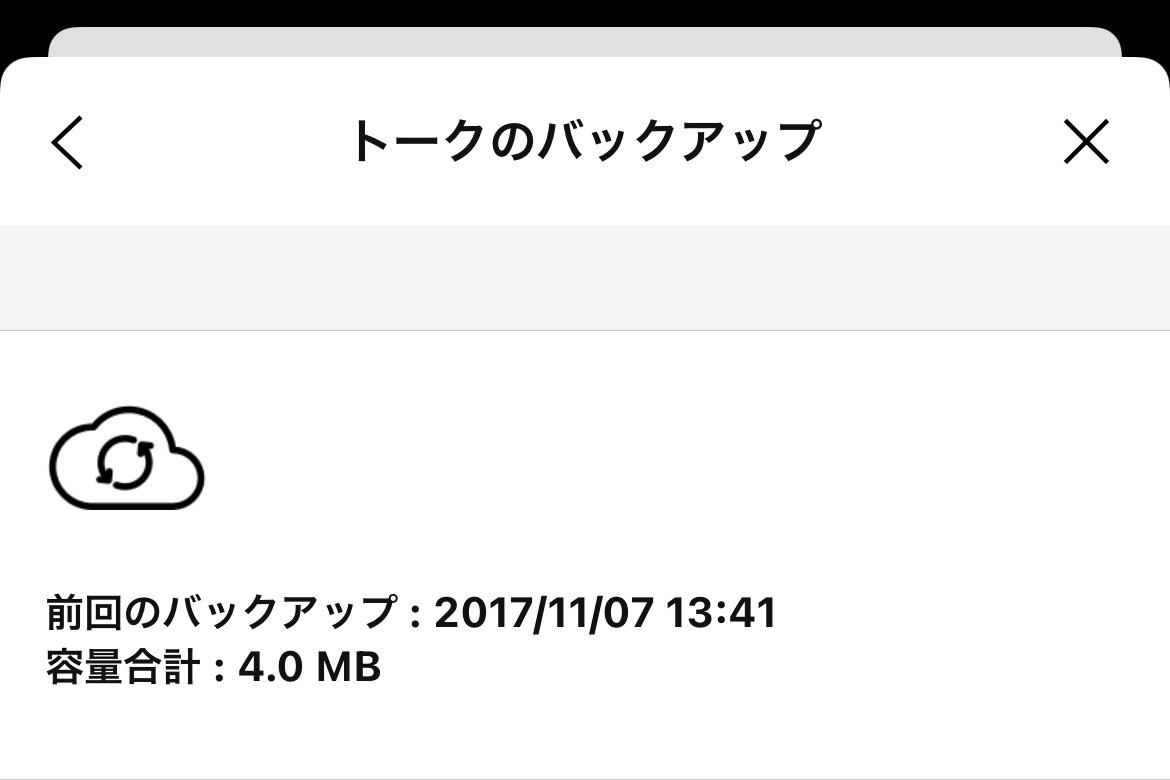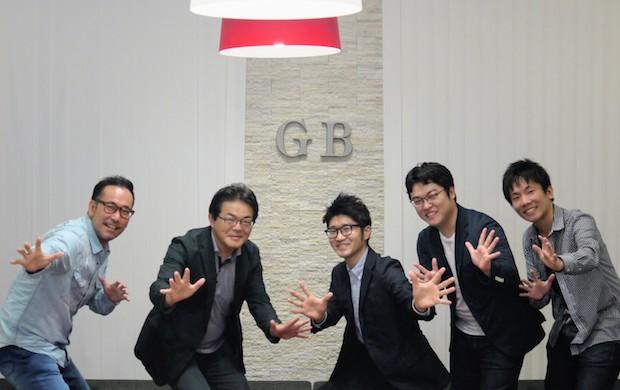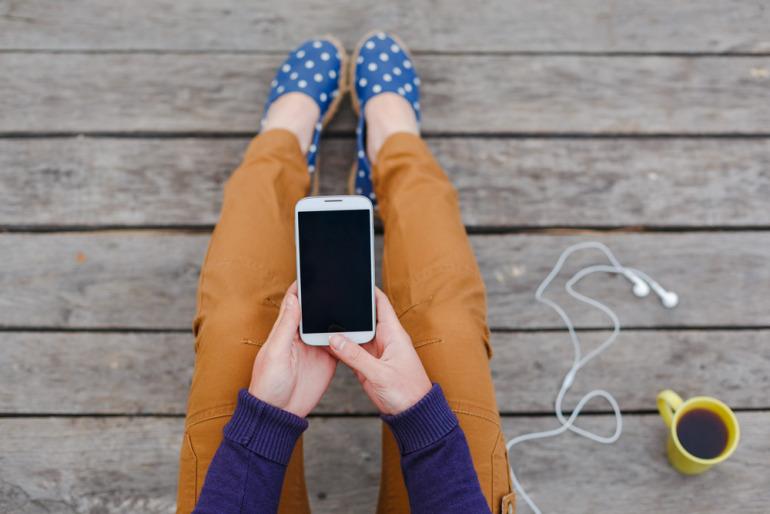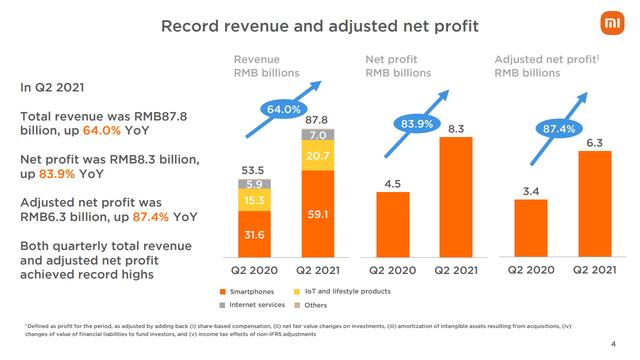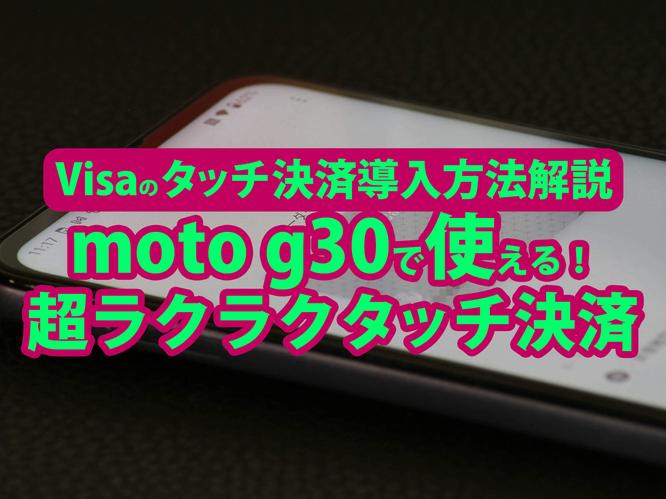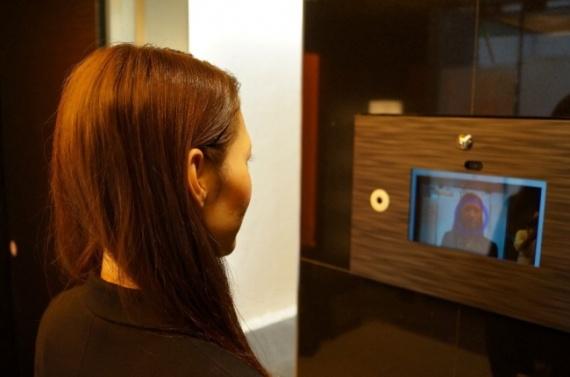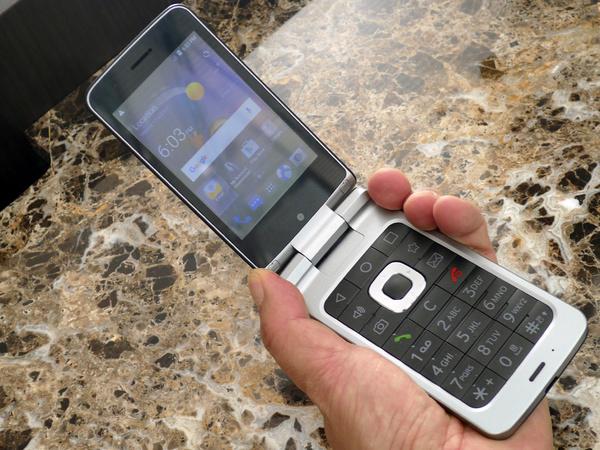This project is to turn down Google, Amazon, Facebook, Microsoft, and Apple products and services for a week each. The fifth week is Apple, but it seems that it was a pretty tough week for Kashmir Hill, who is full of Apple, with smartphones being iPhones and PCs being Macs.
Week 5: Apple
When I thought about this experiment of cutting tech giants out of life one by one, I was going to leave them out. One is Microsoft, because I hardly use it. And the other is Apple, because we use it too much.
First, I have two MacBook Airs, one issued for work and one for personal use. And my iPhone is so much a part of my body that I call it my "tech organ." In addition, my husband and I share an iPad2 that we use at the gym and to keep our 1-year-old daughter from getting bored on planes and long drives.
Apple is my gateway to the all-digital world. I spend most of my time on my Apple devices on any given day. So removing Apple from your life is like having something very useful and essential in your body, like a finger or an eye, ripped off.
Why should I cut Apple? Yes, they are a very valuable and powerful company, almost always the world's largest market capitalization, and yet they are generally considered to be on the side of justice among tech companies. Although there are problems such as tax evasion, poor working conditions of foreign subcontractors, suspicions that China can not maintain the same level of privacy as other countries, iCloud celebrity image leak incident, and recently a huge FaceTime bug. , Apple has generally escaped notoriety.
In fact, Apple has become something of a privacy kingpin in the tech world. When it was recently discovered that Facebook and Google were illegally collecting user data for research purposes, they blocked their iOS apps. The incident also demonstrated to the world Apple's power to shut down apps on users' iPhones if they so wished.
Apple's profits are made by selling hardware and topping other companies' app sales. Their business model is (at least for now) completely different from selling user data and placing ads like Google or Facebook. Apple's Tim Cook CEO has criticized the business that sells people's data here and there, criticizing competitors and calling for the need for privacy laws to limit the movement of such villains.
This stance may just be an image tactic, but Facebook CEO Mark Zuckerberg seems unimpressed by Cook's attacks and has asked management to stop using iPhones. Facebook's official quips are that it just recommended Android, the "most popular operating system in the world," to its employees.
It's true that Android has a lot more users than iOS, but I'm a so-called Apple fanatic. But the US Gizmodo editorial department didn't agree with my dependence on Apple, and told me that I had to cut Apple for this project.
So I tried to disconnect the "tech organ" from my body for a week...it hurts so much.
First, there is no replacement for the iPhone
In this experiment, you will not be able to contact Apple in any way, not only on iOS devices, but also on the Internet. Using the VPN environment Dhruv Mehrotra created for this experiment, the engineer completely cuts off communication between Apple's 16,777,216 IP addresses and my device. Of course, iCloud and all Apple apps cannot be used. Well, if you don't have an Apple device anyway, you won't be able to use most Apple apps.
But the big problem suddenly became what to do with the smartphone. It's okay to use an Android smartphone normally, but after I quit Apple, I was planning to do an experiment to cut off all the big tech at once, so I thought a smartphone that I could continue to use at that time would be the best. However, today's smartphone market is almost dominated by Android and iOS, and it was extremely difficult to find a smartphone other than that.
Windows phones lost in battle, Firefox phones rest in peace. Blakberry is now in the Android camp too. I went to a T-Mobile store in downtown San Francisco and asked if they had a phone that wasn't Apple or Android. I just said.
Gizmodo Managing Editor Andrew Couts also tried to help. He contacted an independent European smartphone OS company called Sailfish, but by the time they responded to my email, time was up. There was another European NPO called /e/ (formerly known as Eelo), which was launched in 2017 with the mission of “freeing ourselves from data slavery” that neither Apple nor Google uses. This NPO provides tools for developers to make DIY smartphones, but they weren't making smartphones that I could normally buy. Shall Duval still send the Eelo prototype? He said, but it also took too much time.
So when I started quitting Apple, I was almost going crazy without my smartphone.
A Librem PC to the Savior
But I did have a PC that I could use for the last two weeks of this experiment. A computer called Librem 13 from Purism, a company that despises big tech and says they're in the "liberation movement." Most of my work is online, so I can do it with a browser or browser-based apps. After that, it was possible to call, chat, text message, etc. with a messaging application such as Signal. So you should be able to get by with a computer... at least in theory.
Purism's computer is all black with a white logo on one key on the keyboard and the back of the unit. Like the MacBook, it uses matte aluminum, but Todd Weaver, founder of Purism, says Apple also has a monopoly on aluminum (not a real monopoly, but a gut feeling).
The 13-inch Librem (Libre means "free") costs $1,399, the same price as Apple's, runs GNU/Linux, and is packed with privacy and security features. , which can be time consuming. For example, when you try to video chat, the camera and microphone are not working? When I thought about it, there was a physical switch for the camera and microphone, and it was turned off.
Purism is new to the world of computer hardware, having just become a "social purpose company" in 2017. In other words, they don't just pursue profit maximization, but think about the company's mission. About 50 employees basically work remotely, and one of them is Eugen Rochko, the development leader of Mastodon. Mastodon is a user-hosted social network that I almost failed to use when I gave up Facebook.
About a month before I started quitting Apple, Mr. Weaver came to downtown San Francisco with my borrowed Librem and showed me how to use it. When I heard the word "Linux," I thought of hardcore programmers and screens with data flowing in a row like in The Matrix, and I was a bit reluctant. I understand that it is okay.
Thoughts of the ``Liberation Movement''
Weaver says that "convenience is the root of the problem."
Weaver has started several companies and has been a computer geek since the 90's. Like many of the engineers I met during this experiment, he is part of the free software movement and believes that all technologies should be compatible and open to review. And he also believes users should have the right to own and control their data.
Many of these engineers hate Apple. Apple's ecosystem is a miniature garden, with its own OS (iOS) and software (songs bought from iTunes cannot be easily listened to on devices other than Mac), its own screws (users can open and fix hardware by themselves) ), custom hardware, and chargers that only work with Apple devices (and change frequently). Apple was the first to get rid of the headphone jack. In Weaver's ideal, users shouldn't be tied to individual company ecosystems.
"Society is now realizing that we are under the control of big tech companies," Weaver said. He likens the real world to using Apple devices instead of open source devices.
This should be familiar to anyone with an iPhone who works at Google or Facebook right now.
Computers used to sit on desks, and users were often away from them for hours or days. But now everyone carries around a small computer (smartphone), or even a wearable computer that taps the wrist when there is a notification. "Computers are getting closer and closer to our brains," Weaver said.
Weaver's concerns about the future of the tech industry have only grown since he became a father to two girls. He imagined the harm his daughters might suffer if the data were abused. He thinks they could one day have chips in their brains, but he doesn't want the data on the chips to be owned by tech companies. So in 2014, he launched the predecessor of Purism and continues to this day.
With the right timing, Purism could have been exactly what I was looking for in a big tech break. They plan to start selling smartphones soon, but it will not be in time for this experiment and will be released this spring.
Librem (or rather, myself) pitfalls
As I wrote above, I started quitting Apple about a month after I got the Librem. However, I haven't used it since then. That was the big problem. I couldn't use my iPhone or Mac anymore, but I was just about to start up with Librem, and it asked me for the decryption password. I knew my username and password to log in to my computer, but it didn't work for this first decryption.
Most Librem users have two passwords, one for decryption and one for login. This maximizes security. In my case, I couldn't remember whether Mr. Weaver set a password for me or whether I did it myself. And either way, I didn't save it somewhere or write it down and got stuck. In other words, I fell into a situation where neither a smartphone nor a computer could be used.
For the first time in weeks of testing, I had to admit my failure. I booted up my MacBook Air and emailed the Purism team for help. I was asked to enter my "password", but that didn't work either, and Purism's chief security officer ended up coming to my house with another Librem. However, it took more than an hour.
iPhone XS to Garage
While I was getting worn out, I felt like the time I was waiting for Purism was perfect for buying a smartphone at Target. Luckily with Target, you can get there without a map app.
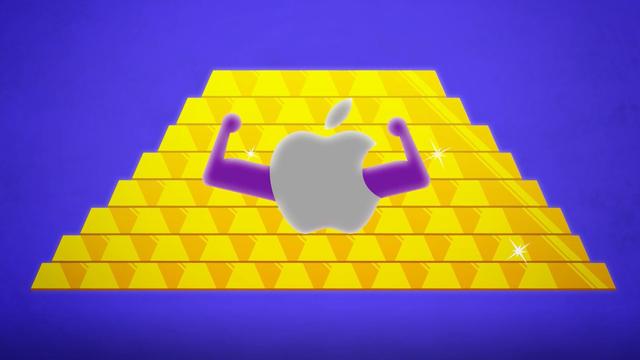
The irony is that the day before I started quitting Apple, my husband and I bought iPhone XS together as an early Christmas present. It costs $2,800 for two, and both come with 256GB of storage, enough to hold a ton of great photos taken with Apple's "neural engine." The process of transferring data from old iPhone to new iPhone was magical. When you capture the dots on the screen of the old iPhone with the camera of the new iPhone, strangely enough, most of the necessary data is on the new iPhone. The process was as smart, smooth, and effortless as the iPhone XS itself. I didn't even need to enter a passcode on the new iPhone, just look at the screen with Face ID.
But 18 hours later, I'm about to toss that futuristic gadget and buy the complete opposite again. It had a terrible camera, a "keyboard" with only number buttons, no touchscreen, no voice recognition, no apps.
The Nokia 3310 was the only mobile phone on Target that wasn't Apple or Google. Originally released in the early 2000s, it was re-released almost as a joke in 2017. The Target clerk excitedly told me that my name tag was Jacob L., but my real name was Jacob Day. Maybe they were happy to sell things that no one else would buy. He also said that Nokia keeps making the 3310 because of the meme that it never breaks.
Galaxy Hurts
The Nokia 3310 4G is incredibly light, with a bright orange plastic casing that's slightly larger than the palm of my hand. It comes in a little box with a pop-art snake illustration, but that's because I played this game on my Nokia ten years ago! It appealed to the nostalgia of countless people. The price is $60, or $1,340 less than the iPhone XS.
However, migrating data to Nokia 3310 was not easy. I also had to use a MacBook Air and visit a T-Mobile store to figure out how to insert the SIM card.
On the Nokia 3310, typing was also torture. There are 15 buttons: 0 to 9, #, left, right, and enter. To type "c", press 1 three times. Or if you turn on predictive typing T9, for example, if you press "1, 1, 8", you'll get suggestions for "act", "cat", "bat", and "abu" in that order.
On a very basic Nokia 3310, I was able to browse the web using the Opera browser. Very late though.
As I was leaving T-Mobile, I texted my husband Trevor. The only contact I remember is his phone number, and I hadn't put any other contact data on my Nokia 3310 yet. Just typing "Hello from my new phone" was exhausting and I had to stop to type. I can't believe that texting used to be this hard and people were texting instead of calling.
Trevor did not reply. I feel bad.
I played around with the Nokia 3310 on my way home, but it was so painful to navigate without the touchscreen that I nearly twisted my leg twice before giving up.
When I got home, I knew why my husband wasn't replying to my text messages. Two iMessage notifications from him popped up on my (then banned) iPhone screen. Apple has my iMessage turned on, and text messages that come to me from iPhone users are automatically routed to the iMessage side, which is the iPhone side.
I googled "how to turn off iMessage" on my MacBook Air (which I really shouldn't be using). But that causes problems. Some people's texts don't reach me, especially if they're sent to group threads and everyone but me is on an iPhone. Getting out of Apple's ecosystem was even harder than Google's.
With my iPhone in hand, I manually entered important contacts into my Nokia. There didn't seem to be a quicker way to do it.
At midnight, Purism CSO Kyle Rankin arrived with a replacement computer. I showed him my Nokia and complained about not being able to use my iOS device.
And Mr. Rankin. He compared switching devices to switching cars. “It takes some getting used to, but you know the basics.
That's right. I used the Librem for a week and it was like getting used to a new car. But the Nokia 3310 is different. It's like driving a new car in a different country where the roads are on the opposite side. It was really hard to get used to, and in the end I realized I was being too hard on myself.
After all, it's an Android smartphone...
Since Google was supposed to be used during this Apple cut week, it occurred to me that I should be able to use an Android smartphone. I rummaged through my cupboard and found five (!) Android phones. I guess the tech journalist's occupational disease is collecting Android phones, like some people collect tote bags from conferences. I chose the one that seemed to be in the best condition. Samsung's Galaxy Nexus, last used in 2012.
Exporting the few contacts I had on my Nokia to my Android was pretty easy. With Bluetooth, it takes a matter of seconds. But retrieving contacts from Apple was more troublesome.
First turn on your iPhone, backup all your contacts to iCloud, sign in to iCloud with Librem (I turned off the VPN for this) and export all your contacts from iCloud as a VCF file. . Then connect your Android smartphone to Librem and import the VCF file to your smartphone. The walls of Apple's miniature garden seemed so high that they were almost insurmountable.
While doing this, I found that I had 1528 contacts on my iPhone. As you scroll through your list of contacts, find people you haven't talked to in years, people you don't remember, entries you've used once and no longer need, like "Naim with a cuddle" When I forgot it in my car, the driver's name was Naim), "NYC Airbnb" (literally), "Victor of Tulum" (I have no idea).
I've narrowed down this huge list to just "people to actually talk to." The resulting list came to an interesting figure of 143 people. What's interesting is that this is the so-called Dunbar number range, which British anthropologist Robin Dunbar advocated as "the number of people who can properly know each other and maintain a stable relationship." With modern technology, we can accumulate thousands of "friends," but when you narrow it down to your most important contacts, it may be closer to 150 in most cases.
I exported these 143 contacts to my Galaxy Nexus. The feeling that my phone only had information about the number of people I could keep track of, even though it had the disadvantage of not knowing who to contact when I suddenly wanted to contact someone I didn't know well, was somehow comforting. In the same way that moving house forces you to think about what you really need, it might make sense to switch devices once in a while.
I can say no
After that, I was finally able to set up a non-Apple world and be ready to put away all the devices with the Apple logo in the Android cupboard. became. I've written about all the hardships so far, but I want to tell you that unlike other tech companies, it's possible to give up Apple products. Apple tried to talk to my device 11,000 times, most of them on the first day when I was acting like crazy and suspicious.
When you're not using your Apple device, Apple doesn't track you. But Apple tries to appeal to everyone except its users, like, "This guy doesn't use Apple!"
For example, I was having a text message conversation with my friend Katie when she suddenly asked me, "Are you on Android?" She found out that her friend Chiko had a baby shortly after quitting Facebook, so when I sent her a message to ask her how she was doing, she asked suspiciously.
"Traveling? Why is it green?"
Apple makes it very clear and literally color coded who is an Apple user and who is not in the Messages app.
Text messages from the iPhone are blue, otherwise messages are green. This distinction is important because it lets users know that blue messages are iMessage and are end-to-end encrypted, and green messages are not. But at the same time, this color coding makes the technology gap of "blue>green" visible. The video sent in the blue speech bubble is clear and beautiful, but the one in the green speech bubble is blurry.
I'm not blue anymore. Green. Coming out of the gated community, I felt strangely ashamed of my new tech class.
I called Chiko many times to talk to her, but she didn't answer the phone. She has a new baby, so it can't be helped. Another day, Chiko tried to call me on FaceTime, but this time I couldn't get out, or rather because Apple was cut off. Chiko sent me a text saying, "I want you to hear my child's cry."
"What about Google Hangouts?" I reply.
"I don't do Google Hangouts," she said. "When will the iPhone work again? I don't like this."
…Next time, we will block all tech companies at once. Amazon, Facebook, Google, Microsoft, and Apple all at once. God help me...
The "Sayonara GAFAM" series so far
Sayonara GAFAM: Trying to stop Amazon → It was impossible
I really can't do this. Do you know GAFAM? G: Google, A: Apple, F: Facebook, A: Amazon, M...
https://www.gizmodo.jp/2019/01/i-tried-to-block-amazon-from-my-life-it-was-impossible.html
Goodbye GAFAM: I'm super lonely after quitting Facebook...
Do you know GAFAM? G: Google, A: Apple, F: Facebook, A: Amazon, M: Microsoft...
https://www.gizmodo.jp/2019/02/i-cut-facebook-out-of-my-life-surprisingly-i-missed.html
Goodbye GAFAM: Try to quit Google → Internet collapse
Cut off Net Five Elders GAFAM, 3rd week is Google. Week 3: Google "Don't be evil" disappeared Google "Don't be ...
https://www.gizmodo.jp/2019/02/i-cut-google-out-of-my-life-it-screwed-up-everything.html
Goodbye GAFAM: Quit Microsoft → Huh? Can not?
Series 4, which cuts off the 5 giant dragons GAFAM (Google, Amazon, Facebook, Apple, Microsoft) that dominate the web, now...
https://www.gizmodo.jp/2019/02/i-cut-microsoft-out-of-my-life-or-so-i-thought.html

